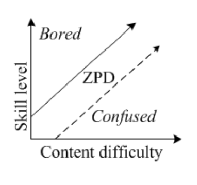1. Socio-Cognitive Support for PwD
Background
A person with dementia, further called the subject in accordance with our ontology, generally forgets information about their relatives and other close persons in their environment. It has been reported that a subject can feel anxious when querying their relatives for information and have a sense of overreliance on those around them (1)(2) .
(1) https://karger.com/dem/article/42/5-6/342/98881/The-Experience-of-Relations-in-Persons-with
(2) "Some people with dementia desired to maintain positive meaningful relationships by receiving support and love from their family, and by being respected for their remaining abilities, their autonomy, and their continued usefulness" Perspectives of People with Dementia About Meaningful Activities: A Synthesis
The subject expresses this reliance through the repetitive need need to ask for information about others in their environment. This burden, as perceived by the subject themselves, can lead to feelings of disconnectedness, separation, and loneliness.
According to the self-determination theory a subject benefits from autonomy, connectedness, and competence in order to improve their motivation for engagement with activities (3). (4) expanded on the connectedness and determined that connectedness is to self, to others, and the environment is important for participating in activities. In others words, in order for the subject to actively maintain relationships and engage with their relatives through social contact, the three named factors must be stimulated.
(3) Ryan, R. M., & Deci, E. L. (2000). Self-determination theory and the facilitation of intrinsic motivation, social development, and well-being. American psychologist, 55(1), 68.
(4) Areum Han, Jeff Radel, Joan M. McDowd, Dory Sabata (2016). Perspectives of People with Dementia
About Meaningful Activities: A Synthesis
Socio-Cognitive Support
The task of increasing autonomy in a subject can consist of remembering information about relatives without having to prompt the relatives in question. According to Vygotsky (6) interacting with another entity through knowledge exchange contributes to knowledge creation. So in order to realize this task we develop the NAO with the functionality of a personal encyclopedia, containing information on relatives and other loved ones. The subject is then able to consult this encyclopedia verbally.
This solution requires at least some retention of information, and as the cognition of the subject depends on the progression of the dementia (5), it will be limited to those with early-stage dementia.
(5) (Week 3.1b -PwDcognitonMusic_Schaefer2023, slide 4)
(6) Vygotsky’s (1896–1934) theory (“an inherent social nature of learning”)
The values related to this can be found in Schwartz. These values include Self-direction, in the sense that it gives them more freedom, but also security, in the sense that they still recognize and belong to the social order they are used to.
It is important to consider the balance between important truthful information and upsetting information; Too much (irrelevant) information might upset the pwd. Supported by the Zones of Proximal Development (source?), a person has a range in which content difficulty and skill level have the right proportions to learn. Extending this to dementia patients: The information difficulty and the dementia progression are symmetrically (negatively) correlated.
Questions to answer here:
- " What tasks and/or values is the human trying to accomplish and how can the technology support the human in doing so? "- xwiki
- How is the subject supported by the robot?
- Which design patterns and theories support this idea?
Short Answer:
With dementia is has been reported that the subject feels like they're a burden on their loved ones. When they constantly have to ask for information they feel dependent. This isolates them and makes them feel lonely. We can help this in the early stages of dementia by providing a personal encyclopedia.
Useful theories/design patterns:
- We have to make sure to define 'early' stage well.
"Cognition: highly dependent on stage of dementia!" - Week 3.1b -PwDcognitonMusic_Schaefer2023, slide 4 - We can use the basic human values from Schwartz.
Basic Human Values Schwartz, S. H. (2012). An overview of the Schwartz theory of basic values. Online readings in Psychology and Culture, 2(1), 11. - Autonomy is part of the self-determination theory. And also connectedness (and part of connectedness is to not feel alone, which is also relevant for us).
Ryan, R. M., & Deci, E. L. (2000). Self-determination theory and the facilitation of intrinsic motivation, social development, and well-being. American psychologist, 55(1), 68. - Knowledge can be created when persons actively interact by knowledge exchange, sharing experiences, and taking asymmetric (e.g., teaching / learning) roles Rooted in Vygotsky’s (1896–1934) theory (“an inherent social nature of learning”)
- Educator's role is to give children experiences that are within their Zones of Proximal Development ZPD, thereby advancing their individual learning (this relates to our issue of truth vs upsetting the patient)

Other possibly useful resources:
- Areum Han, Jeff Radel, Joan M. McDowd, Dory Sabata (2016). Perspectives of People with Dementia
About Meaningful Activities: A Synthesis - Lazar, A., Thompson, H., & Demiris, G. (2014). A systematic review of the use of technology for reminiscence therapy. Health education & behavior, 41(1_suppl), 51S-61S.
- Wilson, R. S., Wang, T., Yu, L., Grodstein, F., Bennett, D. A., & Boyle, P. A. (2021). Cognitive activity and onset age of incident alzheimer disease dementia. Neurology, 97(9).
- Chaturvedi, R., Verma, S., Das, R., & Dwivedi, Y. K. (2023). Social companionship with artificial intelligence: recent trends and future avenues. Technological Forecasting and Social Change, 193, 122634.
- E. Grandmaison and M. Simard, “A Critical Review of Memory Stimulation Programs in Alzheimer’s Disease,” The Journal of Neuropsychiatry and Clinical Neurosciences, vol. 15, no. 2, pp. 130–144, May 2003
